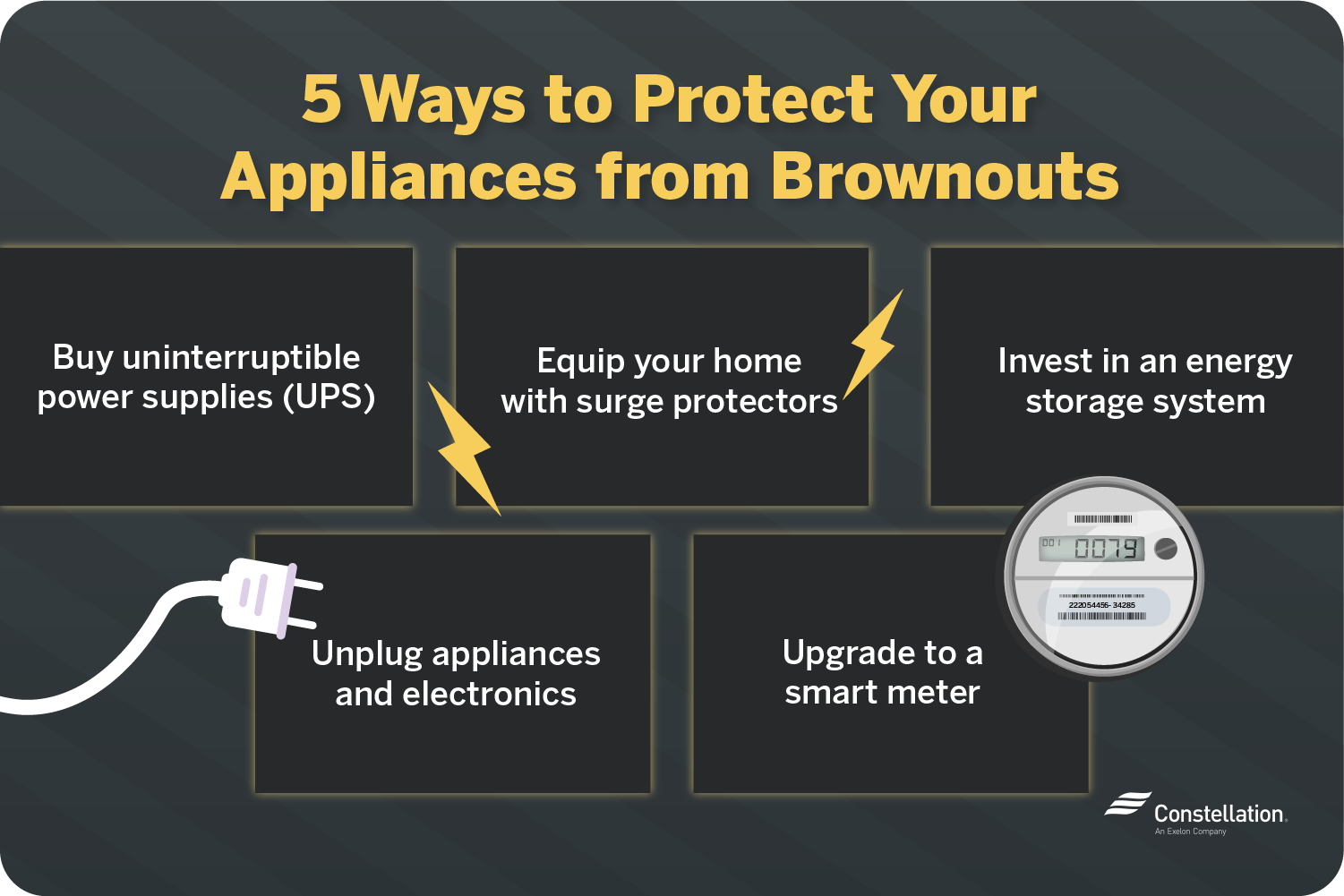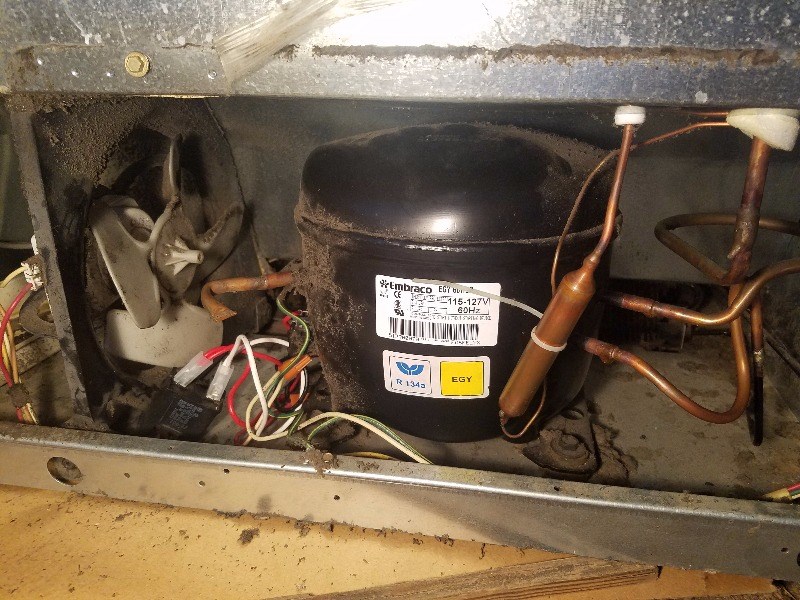Brilliant Strategies Of Tips About Can Low Voltage Damage A Fridge

The Complete Guide To Low Voltage And How Protect Your Air
The Silent Fridge Killer
Ever noticed your lights dimming a bit, especially during peak hours? That little dip in power, known as low voltage or undervoltage, might seem insignificant. But what if I told you it could be slowly chipping away at the lifespan of your beloved refrigerator? Yes, indeed! Low voltage and its impact on appliances, particularly the fridge, is a concern worth exploring. It's not just about inconvenience; it's about protecting a major household investment.
1. Understanding the Enemy
Imagine your electrical system as a highway. Voltage is the traffic flow. When things are running smoothly, traffic is consistent. Low voltage is like a sudden traffic jam; the flow is restricted. In electrical terms, it means the voltage supplied to your appliances is significantly lower than the standard 120 volts (in North America) or 230 volts (in many other countries). This can happen for various reasons, such as high demand on the grid during hot summer days, faulty wiring in your home, or issues with the local power transformer. It can even be because your neighbor is running a power-hungry appliance simultaneously.
The problem isn't just that your lights dim a little. Appliances, especially those with motors like your refrigerator, are designed to operate within a specific voltage range. When the voltage dips below that range, they have to work harder to maintain their function. Think of it like trying to run a marathon while wearing ankle weights. You can do it, but it's going to put a lot more strain on your body (or in this case, your fridge's motor!).
Now, the part of speech of "low voltage" is a noun phrase, where "low" is an adjective describing the noun "voltage". It's the voltage, specifically, that is low. This is our main point, because we're discussing the impact of a specific type of voltage on refrigerators. Therefore, the low voltage is the keyword to be main point in this article.
Think of the part of speech for low voltage. The adjective "low" is modifies the noun "voltage".
2. How Does Low Voltage Damage a Fridge?
So, how does this "traffic jam" in your electricity actually hurt your fridge? The main culprit is the compressor motor. This is the heart of your fridge, responsible for circulating the refrigerant that keeps things cool. When voltage is low, the compressor motor tries to draw more current to compensate. It's like stepping on the gas pedal harder to maintain speed going uphill.
This increased current leads to overheating. Over time, this excessive heat can damage the motor windings, causing them to short circuit or burn out. It's like slowly cooking your motor from the inside out! The result? A fridge that doesn't cool properly, makes strange noises, or simply dies an untimely death. And nobody wants a fridge full of spoiled food.
Beyond the compressor, other components can also suffer. The electronic control board, which manages the fridge's functions, is sensitive to voltage fluctuations. Low voltage can cause it to malfunction, leading to erratic cooling cycles, temperature control issues, or even complete failure. Think of it like a computer glitch caused by a power surge, but instead of a frozen screen, you get a warm fridge.
Another victim can be the capacitors. Capacitors are electronic components that store energy and help the compressor motor start and run smoothly. Low voltage can weaken them over time, reducing their ability to perform their job. This leads to increased stress on the motor and further exacerbates the problem.
3. Signs Your Fridge Might Be Suffering from Low Voltage
How can you tell if your fridge is being silently attacked by low voltage? Keep an eye (and an ear) out for these telltale signs:
- Unusual Noises: Is your fridge making a humming sound that's louder or different than usual? This could indicate the compressor motor is struggling.
- Inconsistent Cooling: Are some areas of your fridge warmer than others? Are your frozen goods starting to thaw? This suggests the fridge isn't maintaining a consistent temperature.
- Frequent Cycling: Is your fridge turning on and off more frequently than normal? This could be a sign the compressor is working harder than it should.
- Dimming Lights: Do your lights dim noticeably when the fridge kicks on? This is a clear indication of voltage drop.
- Warm Motor: Carefully (and safely!) touch the compressor motor (usually located at the back of the fridge). If it's excessively hot, that's a red flag.
If you notice any of these signs, it's crucial to take action to protect your fridge.
4. Protecting Your Fridge from the Undervoltage Villain
Fortunately, there are several things you can do to shield your refrigerator from the damaging effects of low voltage:
- Voltage Stabilizer/Regulator: This is probably the most effective solution. A voltage stabilizer automatically regulates the voltage supplied to your fridge, ensuring it remains within a safe range, even when the incoming voltage fluctuates. It's like a bodyguard for your appliance.
- Surge Protector: While primarily designed to protect against overvoltage (surges), some surge protectors also offer undervoltage protection. Look for one specifically designed to guard against both surges and dips in voltage.
- Dedicated Circuit: Ensure your fridge is on a dedicated circuit. This means it's the only appliance drawing power from that circuit breaker. This can help prevent voltage drops caused by other appliances on the same circuit.
- Check Your Home Wiring: Have a qualified electrician inspect your home's wiring to ensure it's up to code and can handle the electrical load. Faulty wiring can contribute to voltage drops.
- Contact Your Utility Company: If you suspect widespread low voltage issues in your area, contact your local utility company. They can investigate and address problems with the power grid.
Taking these steps can significantly extend the life of your fridge and save you from costly repairs or replacements.
5. Is A New Fridge Worth The Risk?
Ultimately, the decision of whether to buy a voltage regulator depends on a few factors: the severity of the low voltage problem in your area, the value of your refrigerator, and your peace of mind. If you experience frequent and significant voltage drops, a regulator is a wise investment. Especially for high-end fridges or models with sensitive electronic components, the cost of a regulator is a small price to pay compared to the potential cost of replacing your appliance.
Ignoring low voltage problems can lead to a slow, painful death for your fridge, and nobody wants that. Taking proactive steps to protect your refrigerator from the harmful effects of undervoltage can save you money, prevent food spoilage, and ensure your cooling companion keeps chilling for years to come. So, take action and give your fridge the power protection it deserves!
It's always better to be safe than sorry, especially when it comes to preserving your precious food and avoiding unexpected appliance breakdowns. A little prevention can go a long way!
Remember: an ounce of prevention is worth a pound of cure. Don't wait until your fridge is on its last legs before taking action. Protect your investment now and enjoy the peace of mind knowing your food is safe and your appliance is running smoothly.

Can Low Voltage Damage Your Appliances? We Have The Shocking Answers
Frequently Asked Questions (FAQs)
6. Q
A: You can use a multimeter to measure the voltage at any electrical outlet. Simply set the multimeter to the AC voltage setting (usually around 200V or higher) and carefully insert the probes into the outlet slots. The reading will display the voltage. If you're not comfortable working with electricity, it's best to call a qualified electrician.7. Q
A: A power outage itself doesn't directly cause the same type of damage as low voltage. However, the restart after a power outage can sometimes create a surge, which can be damaging. Low voltage is a sustained problem, whereas a power outage is a complete lack of power.8. Q
A: Not necessarily. While newer fridges might have some energy-saving features, they are generally just as susceptible to low voltage damage as older models. In fact, some newer models with complex electronic components might even be more vulnerable. The only way to truly protect your fridge from low voltage is with external voltage regulation or protection.

Understanding Generator Voltage Regulators Types And How They Work

Can Low Voltage Damage Electronics? YouTube

